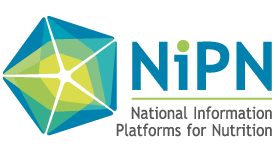Main characteristics of existing routine data systems
HMIS
- Definition: An information system specially designed to assist in the management and planning of health programmes, as opposed to delivery of care (WHO 1993)
- Advantages: Once it has been set up, it is costs less and allows monitoring of health outcomes and indicators
- Disadvantages: Only captures information for users of the health system and not representative for entire population, denominator need to be estimated for indicator calculation
IDSR
- Definition: Integrated Disease Surveillance programme ensures the availability of guidelines for integrated disease surveillance and response. It provides necessary technical support for strengthening national communicable disease surveillance systems through the implementation of the Regional Strategy for Integrated Disease Surveillance and the International Health Regulations.
- Advantages: useful and relevant in monitoring communicable diseases, it has the advantage to alert about sudden increases of MAM/SAM cases and deaths thus providing alerts in case of context deterioration
- Disadvantages: Not nutrition relevant
Sentinel Surveillance
- Definition: Limited case ascertainment area, traditionally includes largest hospitals in geographic area; Should do pre-evaluation to select appropriate sentinel sites
- Advantages: Can easily collect individual patient-related data; Less costly and burdensome on resources; Flexible system design; Useful for documenting trends; Allows for routine monitoring of antibiotic non-susceptibility
- Disadvantages: Although less costly than population-based surveillance, sentinel system may still require significant financial investments in personnel and resources; Data may provide biased or skewed findings; Data are not generalisable to geographic population; This method does not collect incidence data
Sectors data systems
- Definition: Data routinely collected by sectors based on a set indicators defined to track activities
- Advantages: Source of variety of information (Weather, Climate change, Pollution, Water, sanitation, Education, Food chain, Agriculture data, Budget/finance data, etc.)
- Disadvantages: Aren’t usually well organised and harmonized ones with others in terms of representativeness
Sources:


